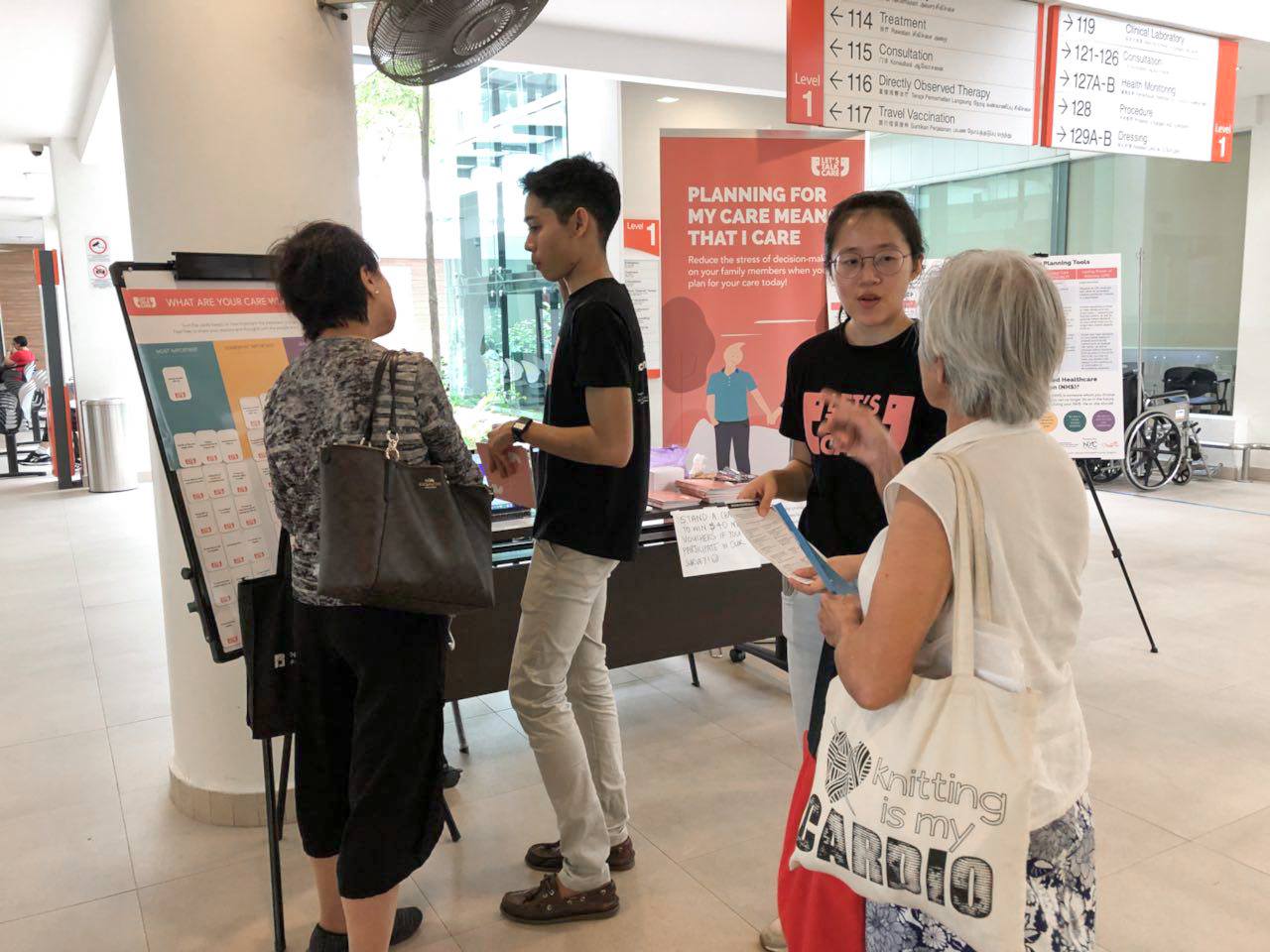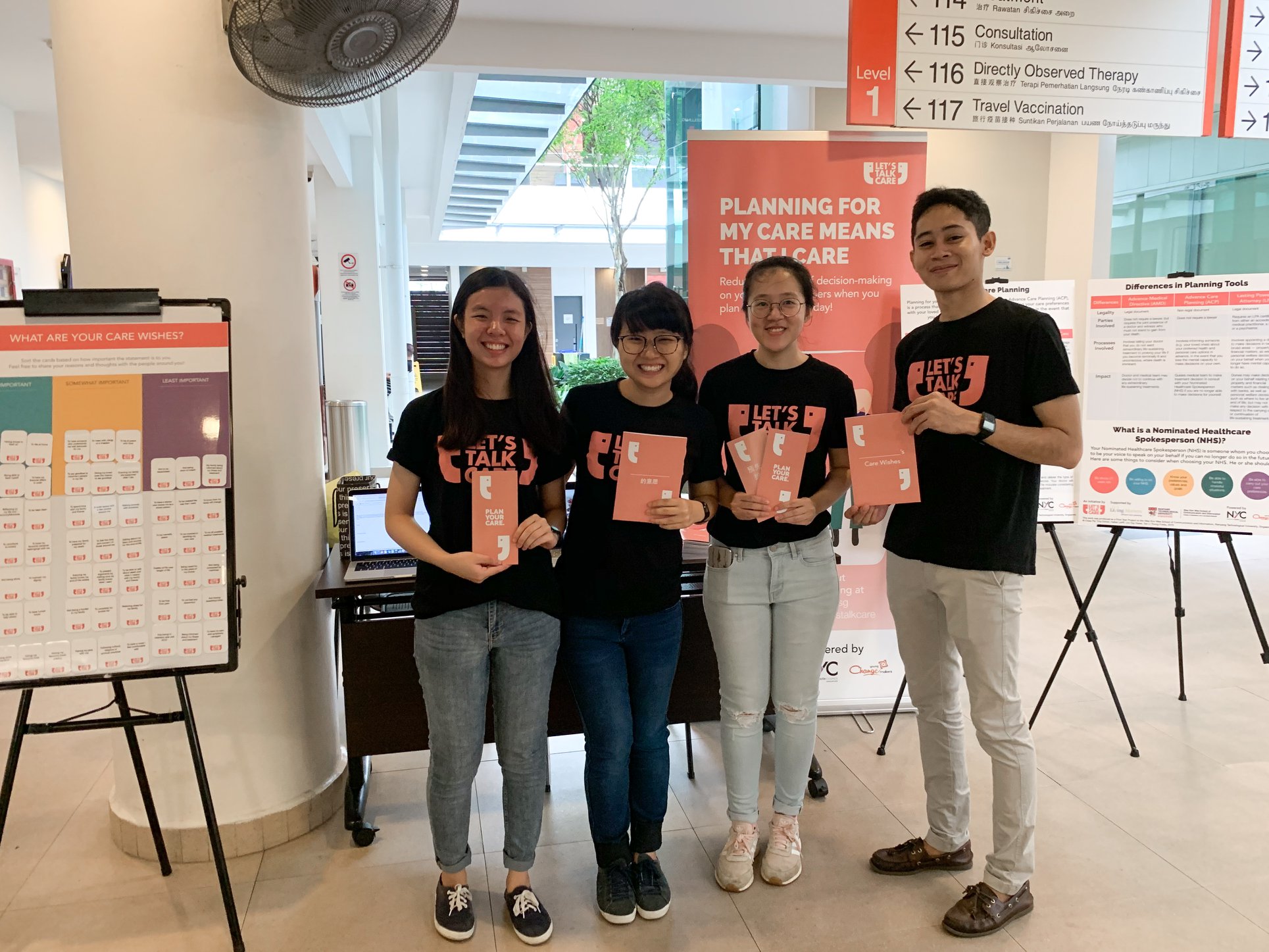When you are older and suddenly face the inability to make mental decisions for yourself, the last thing you would want is to be taken care of in a way that you do not like or want.
Four young Singapore undergraduates are trying to turn this around with a new social campaign to get older Singaporeans to tell their loved ones how they would like to be cared for in case they lose such mental capabilities and need to rely on others.
The students are final-year undergraduates from Nanyang Technological University’s Wee Kim Wee School of Communication and Information, with the school named after one of Singapore’s former presidents.
Freda Tan, Esther Chew, Lim Say Hwee and Haikal Latiff came together to embark on this cause as part of their final-year project, and say their passion for the cause came about when one of their team members witnessed an incident where an elderly person lost the ability to make decisions by themselves.
“I witnessed the stress my cousin had to go through in deciding what sort of care his father would want after suffering a stroke,” said Haikal to Coconuts Singapore.

The campaign called Let’s Talk Care started in January and ends this month, with the students holding roadshows at polyclinics in Singapore to persuade elderly Singaporeans to make care arrangements, known as advance care planning (ACP).
A survey that the students conducted among some 200 elderly Singaporeans aged 50 to 64 revealed that more than 67 percent of respondents did not see a need to get ACP done soon.
“We understand that the end goal of sharing one’s future care preferences may not be an easy topic to broach,” said Esther.
Knowing that having a sensitive conversation with loved ones such as planning for life emergencies can be difficult, the students have developed a workbook in English and Chinese for these elders to write down their care wishes, which can be accessed on their website.
The ACP is different from other types of planning in that it only nominates a healthcare “spokesperson” to speak on behalf of you to doctors, and is drafted through a non-legal document that does not need a lawyer to verify it.
It differs from an advanced medical directive, where someone gives a doctor the right to stop treatment to prolong their life if death is imminent.
It also differs from a lasting power of attorney, where the nominated “spokesperson” also has the right to determine other aspects of that person’s life, such as property or financial aspects.
As mentioned on the campaign website: “ACP is not a conversation about death. It is an ongoing discussion about your healthcare preferences.”
More information can be found on the campaign’s Facebook page. Kudos to these students for thinking ahead and being active citizens with their cause.





Reader Interactions